Navigating the complex regulatory landscape governing air travel can be a daunting task, particularly when it comes to understanding the nuances of transporting consumables, such as edibles, aboard an aircraft. The rules surrounding the permissibility of carrying such items are often shrouded in legal jargon and vary significantly depending on various factors including jurisdiction, airline policies, and the nature of the substances contained within these edibles. As travelers increasingly seek to include these products in their carry-on or checked luggage, the pertinent question emerges: Can you bring edibles on a plane? Unraveling this query requires a dive into the intricate interplay between federal guidelines, aviation laws, and the evolving landscape of substance legalization.
Join us as we explore this topic further, uncovering insights that could radically alter your travel preparations.
Traveling High: Can You Bring Edibles On A Plane?
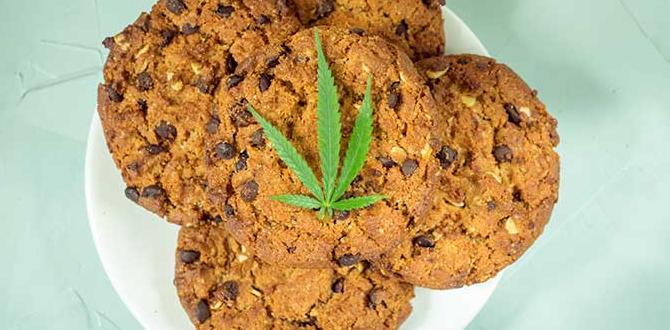
understanding the legal landscape of edibles
– differences in state and federal laws regarding cannabis – tsa regulations on cannabis products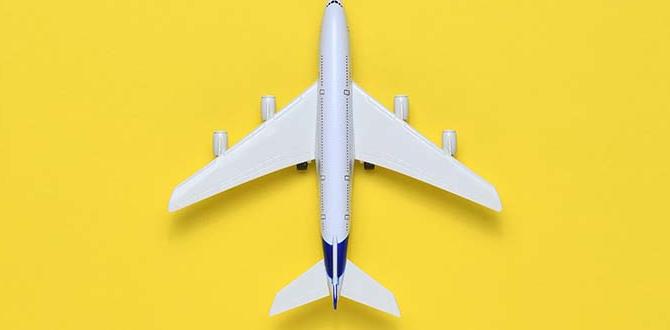
Travelers often wonder if they can bring edibles on a plane, especially with the evolving laws on cannabis. Understanding these regulations is crucial. In the United States, state laws on cannabis can vary widely, with some states allowing recreational use and others permitting only medical use or completely prohibiting it.
However, it’s essential to know that federal law, which governs airspace, still classifies cannabis as an illegal substance. This means the Transportation Security Administration (TSA), a federal agency, follows federal law when screening passengers and their belongings. The TSA’s main focus is on security threats, but if they discover cannabis products, including edibles, they are required to report this to law enforcement. Here’s a quick glance at the related rules:
- Federal law: Bans all forms of cannabis, including edibles, on planes.
- State laws: Differ widely; some allow cannabis use, but federal law prevails in air travel.
- TSA regulations: Focus on security but must report cannabis products found during screening.
types of edibles and transportation considerations
– description of common edibles: gummies, chocolates, candies – packaging and discretion
When thinking about traveling with edibles, understanding what you can carry and how to pack them is key. Popular types include:
- Gummies: Soft, chewy, and come in various flavors.
- Chocolates: Often in bars or small bites, offering a rich taste.
- Candies: Hard or soft sweets in numerous shapes and sizes.
Packaging and discretion are crucial. Edibles should be kept in their original, sealed packaging to avoid questions. If original packaging is bulky or impractical, transferring to smell-proof and discreet containers can help.
Still, always remember to check the latest regulations to avoid any travel hiccups.
federal aviation administration (faa) and tsa guidelines
– faa stance on flying with thc-containing products – tsa’s primary focus during security screeningsEver wondered if you could fly high while flying? Well, when it comes to taking THC-infused goodies on a plane, the FAA (Federal Aviation Administration) and the TSA (Transportation Security Administration) have their own playbook. Simply put, the FAA isn’t a huge fan of you jet-setting with THC products.
Meanwhile, the TSA agents at airport security are more like detectives, but instead of solving mysteries, they’re searching for threats to flight safety. So, while they’re not actively looking for your stash of gummy bears, if they stumble upon them, there could be trouble. Here’s a quick look into what these agencies say:
| Agency | Stance on THC Products |
|---|---|
| FAA | Not Allowed |
| TSA | Focus on Security Threats |
Remember, just because it’s edible, doesn’t mean it’s flyable. So, unless you want your trip to soar in an unexpected direction, it’s best to leave those treats at home.
Pack wisely – your snacks can wait for your return!
domestic vs. international flights: what to know
– complications of flying internationally with edibles – countries with strict drug laws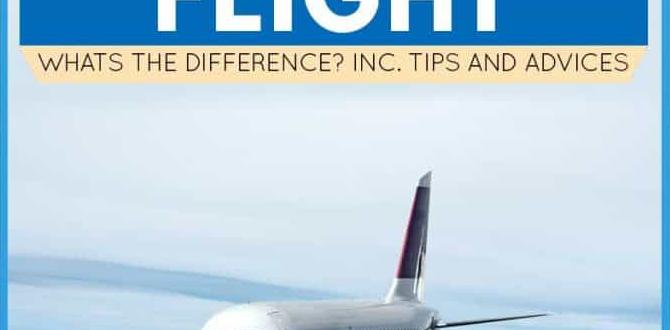
Traveling through the skies with your favorite snacks might seem like a good idea until you hit international waters. It’s like going from a playground to a strict principal’s office. While hopping from state to state with edibles in your luggage generally flies under the radar, crossing borders turns the tables.
Many countries play by the “not in my backyard” rule when it comes to drugs, including the seemingly innocuous edible. Imagine biting into a brownie that lands you in a whirlwind of legal trouble – not the adventure you had in mind, right?
It’s crucial to know that the sky isn’t always friendly to your edible companions, especially when you’re venturing into territories with iron-clad drug laws. Think of countries where the law looks at edibles not as harmless treats but as contraband.
One wrong step, and your vacation could turn into a staycation behind bars. And no, claiming ignorance won’t make you any less guilty in their eyes. Here’s a little table to show how complicated things can get:
| Flight Type | Edible Acceptance Level |
|---|---|
| Domestic | Moderately Okay |
| International | Risky Business |
Remember, it’s not just about what’s in your snack bag; it’s about knowing the rules of the playground you’re stepping into.
So, unless you want your travel tales to include a dramatic courtroom scene, it’s wise to leave those special treats at home when flying internationally.
risks and legal consequences of flying with edibles
– potential legal repercussions at the federal level – risks of crossing state lines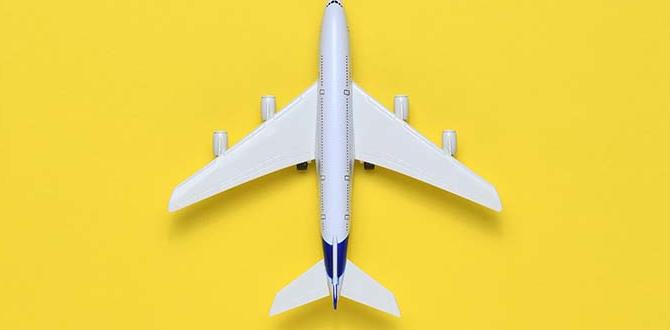
Thinking about taking your favorite snacks, the special kind that makes movies funnier and pizza tastier, on a flight? Well, buckle your seatbelt because navigating the skies with edibles is like playing hopscotch in a minefield. At the federal level, it’s a no-fly zone for your bake-sale goodies since the TSA is not in the business of letting your “special” brownies slide. And crossing state lines?
It’s like sneaking a cat into a dog park; you might just get caught and face some serious barking. Here’s a quick glance at what you’re up against:
| Risk Factor | Consequences |
|---|---|
| Federal Law | Fines or legal action, no matter the state laws |
| Crossing State Lines | Potential charges, even if both states are 420-friendly |
So, before you pack your bags with those gummy bears that pack a punch, remember, the only high you might get is from the flight itself. Keep it legal and keep it at home, unless you fancy a detour to the courthouse.
alternatives to bringing edibles on a plane
– purchasing edibles at your destination – legal alternatives for managing anxiety or pain during flights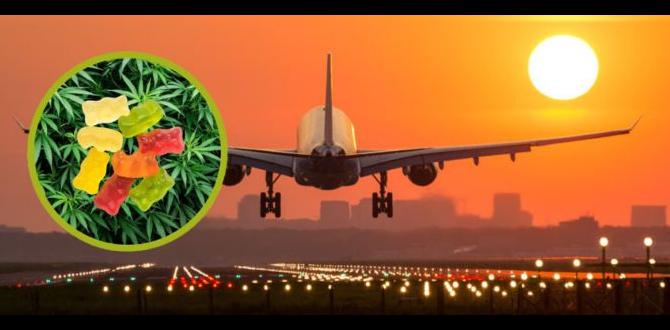
Wondering how to keep your cool or manage pain without your usual edibles on a flight? Here’s a cheeky idea: why not treat yourself at your destination? Many places offer a smorgasbord of local delights that might just do the trick.
Plus, it’s a great way to dive into the local culture. But, if you’re not keen on waiting, consider some legal alternatives. Things like calming teas, essential oils, or over-the-counter medications can be true lifesavers. And hey, they won’t raise any eyebrows at security.
Check out this handy table for quick ideas:
| Alternative | Benefits | Availability |
|---|---|---|
| Calming Teas | Relaxes mind, helps with sleep | Most airports |
| Essential Oils | Reduces stress, smells great | Online, health stores |
| Over-the-Counter Meds | Manages mild pain and anxiety | Pharmacies, convenience stores |
Remember, the sky’s the limit when it comes to finding creative solutions. Who knows? You might just discover a new favorite way to unwind or deal with discomfort while flying.
tips for flying with edibles safely and legally
– how to research and understand laws of your destination – advice for if you’re questioned by tsa or law enforcementEmbarking on a journey with edibles in your bag? Here’s a slice of advice: know before you go! Imagine stepping into the airport, your snacks tucked away, only to be greeted by a maze of laws that change from place to place. Homework time!
Research the regulations of your destination. Websites of official airports or government pages are your go-to spots for the latest info. A simple search could save you a game of 20 questions with security.
Now, let’s talk worst-case scenario – getting questioned by TSA or law enforcement. First rule: don’t panic. Imagine you’re in a game show but with less enthusiastic clapping.
Keep answers truthful yet brief. Remember, carrying legal edibles with proper documentation is like having a golden ticket, but only if you’re not crossing into territories where they’re frowned upon. It’s less about hiding your snacks and more about knowing the playbook.
If you’re still scratching your head, here’s a quick table to help you remember what to do:
| Step | Action |
|---|---|
| 1 | Research destination laws |
| 2 | Keep documentation handy |
| 3 | Answer honestly if questioned |
| 4 | Don’t panic |
So, before you pack those gummies or brownies, do a little homework, and remember to keep cool. Your future self will thank you as you sail smoothly through security, onto your next adventure.
Conclusion
In summary, while the legality of bringing edibles on a plane can depend on various factors including the substance they contain and the jurisdictions involved, travelers are advised to exercise caution and thorough research before attempting to fly with such products. To avoid potential legal consequences, it’s always best to stay informed about the latest TSA guidelines and state or country-specific laws related to edibles.
FAQs
What Are The Tsa’S Regulations Regarding Traveling With Cannabis-Based Edibles Domestically Within The United States?As of my last update in April 2023, the Transportation Security Administration (TSA) states that while their focus is on security and detecting potential threats to aviation and passengers, it’s important to note that marijuana, including cannabis-based edibles, remains illegal under federal law in the United States. Therefore, TSA officers are required to report any suspected violations of law, including possession of marijuana and its derivatives. However, the TSA does not specifically search for drugs, but if any illegal substances are discovered during security screening, law enforcement will be notified. So, traveling domestically within the U.S. with cannabis-based edibles is risky and could lead to legal repercussions if discovered.
Can You Bring Cbd Edibles On A Plane If They Meet The Legal Thc Content Threshold?Yes, you can bring CBD edibles on a plane if they contain less than 0.3% THC, meeting the legal threshold as established by federal law in the United States. These products must come from hemp and be produced in compliance with the Agriculture Improvement Act of 2018. It’s important to ensure your CBD products are clearly labeled and, if possible, carry the certificate of analysis (COA) to confirm their THC content. However, laws vary by destination, so it’s vital to check the laws of both your departure and arrival locations.
How Do International Laws Differ Regarding Transporting Edibles Aboard Airplanes When Traveling To Or From Countries Where Cannabis Is Legal?International laws regarding the transportation of edibles containing cannabis by airplane vary significantly, even when traveling to or from countries where cannabis is legal. Some countries may allow the transport of cannabis edibles for personal use if coming from a place where it is legal, while others strictly prohibit bringing such items into their territory regardless of origin. These regulations are affected by both international drug control treaties and the local laws of each country, leading to a complex legal landscape. Travelers need to be thoroughly informed about the laws of their destination country, as well as any countries they may transit through, to avoid legal repercussions.
Are There Specific Packaging Or Declaration Requirements For Carrying Edibles In Your Carry-On Or Checked Luggage?Yes, specific packaging and declaration requirements exist for carrying edibles in both carry-on and checked luggage. These requirements are dependent on the type of edible, its origin, and the laws of the departure and destination countries. Generally, all edibles must be clearly labeled and may be subject to inspection. It’s essential to check the regulations of the Transportation Security Administration (TSA) and customs agencies in both the origin and destination countries before traveling.
What Are The Potential Legal Consequences Of Being Caught With Cannabis-Based Edibles At Airport Security Checkpoints In Countries With Strict Drug Laws?In countries with strict drug laws, being caught with cannabis-based edibles at airport security checkpoints can result in severe legal consequences. These can range from heavy fines and mandatory drug education programs to long-term imprisonment. Furthermore, the individual could be banned from entering the country in the future. Additionally, in some jurisdictions, the offense might be prosecuted as drug trafficking, leading to even more severe penalties including, in extreme cases, the death penalty.
